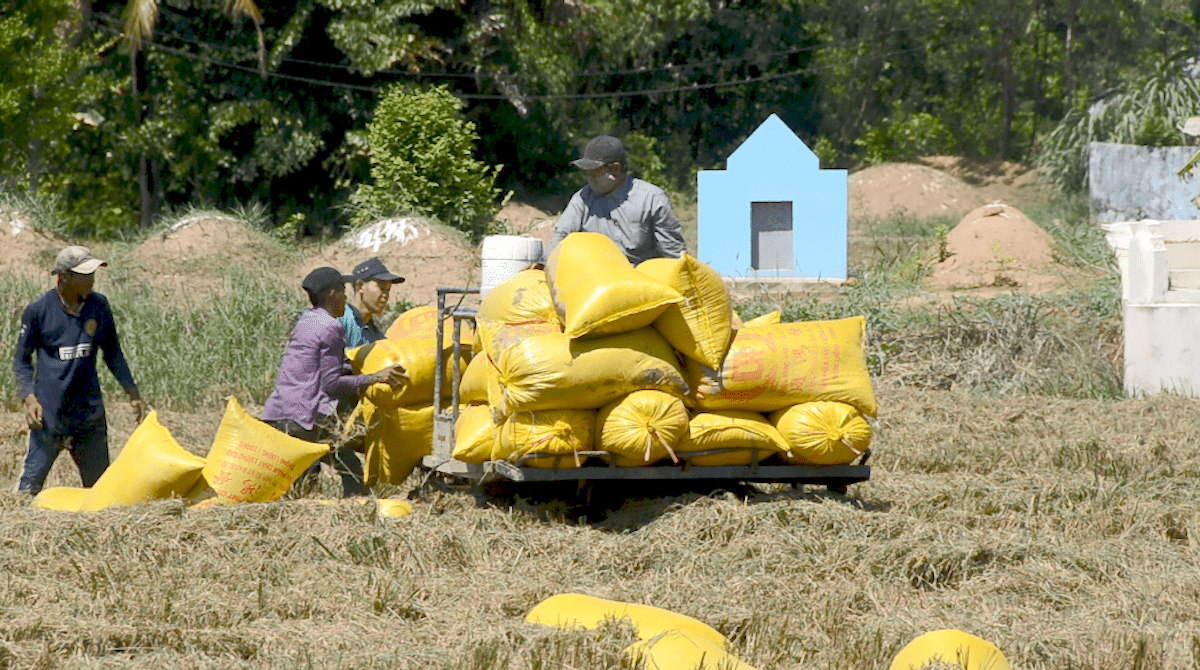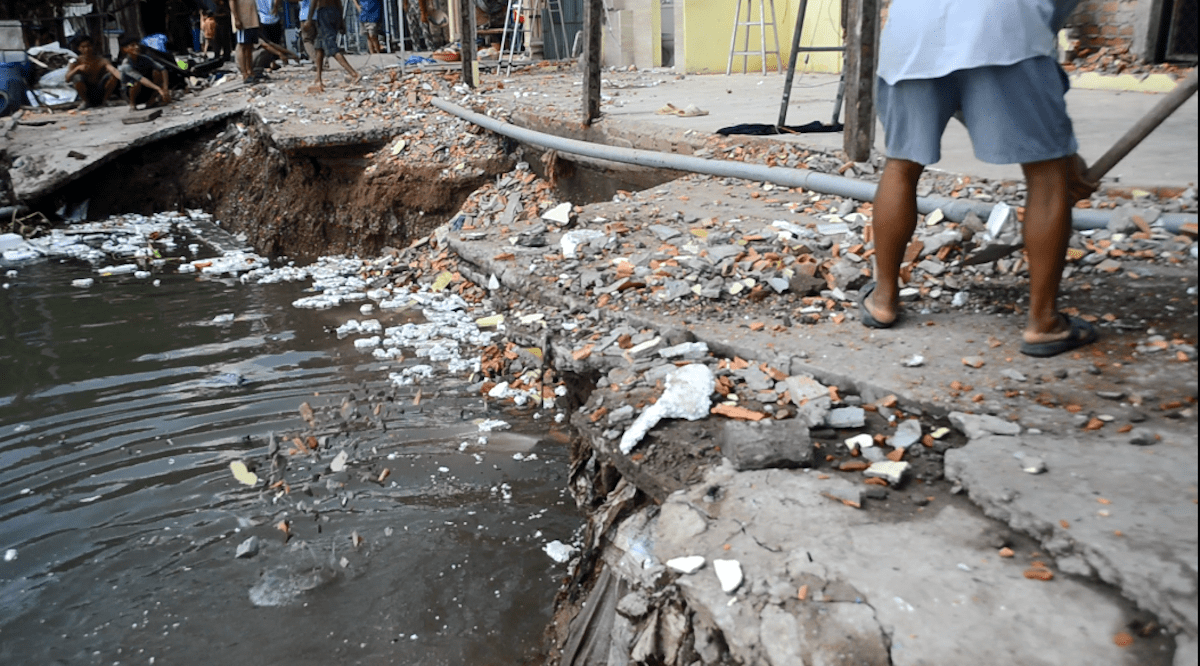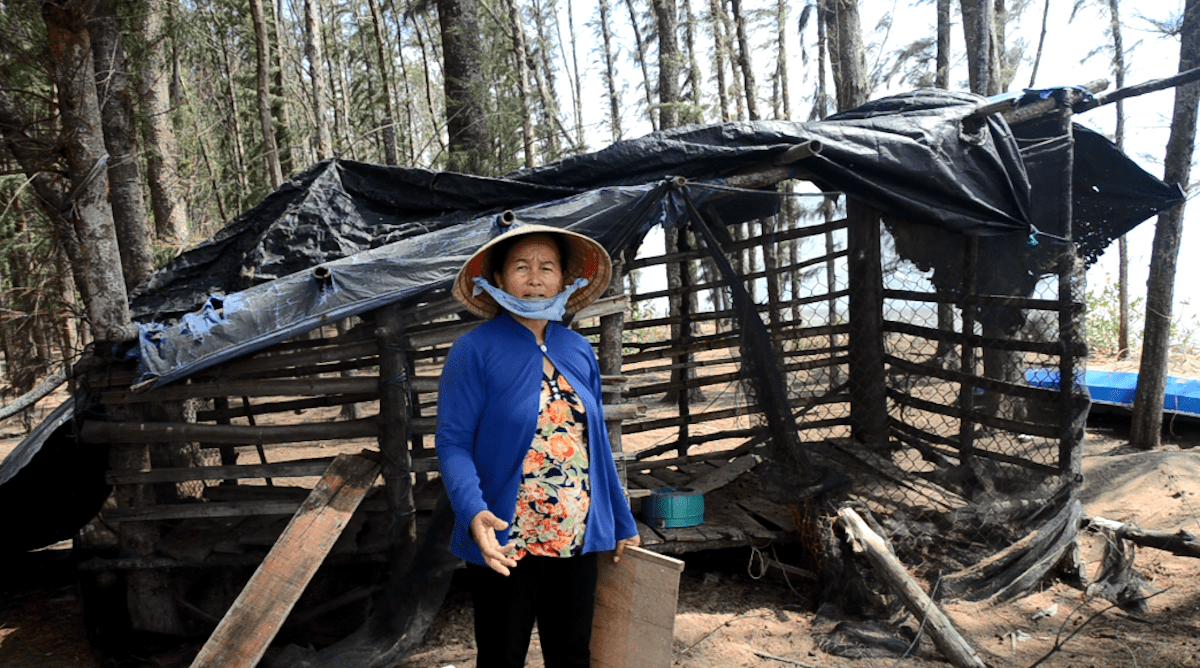Young women are pursuing husbands abroad, betting on economic security over love, while leaving young men to struggle to find partners among the women who remain. This is Part 3 of Mekong Eye’s three-part investigation into how many people in the Mekong Delta are not adapting to climate change, but leaving, altering demographics for which there’s yet been any response.
A decade ago when Nguyen Thi Kim Oanh and her sister began hearing stories of new-era matchmakers uniting would-be Vietnamese brides with South Korean bachelors, they decided to take the plunge.
“My family is poor. I heard how daughters could support their parents by marrying male foreigners. My sister and I wanted to follow them,” says Oanh, a woman with white skin and long hair, about the impetus for their marriages. “Ten years ago as more storms and heavier rains began creating difficulties for selling my fishing nets and growing chilies, I had little money to help my ill parents.”
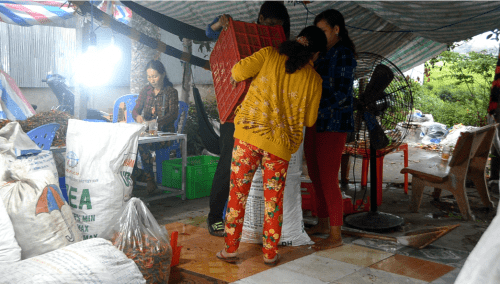
One year after she signed the marriage certificate, Ms. Oanh’s application for South Korean residency was approved and she left her rural upbringing to join the ranks of cross-border brides.
Getting married and running away
The Ministry of Police reports that from 2008 – 2014, about 83,000 women married foreign men, mostly from Taiwan, South Korea, China and the United States. The women were generally born into poor families from either the Mekong Delta or Northern provinces, and had low education and limited working skills.
Poverty has longtime been a way of life in the Mekong Delta, in no small part due to its exposure to natural disasters, but now climate change is making things much worse says Asst. Prof. Dr. Le Anh Tuan, Deputy Director of the Research Institute for Climate Change – Can Tho University. He observes numerous signs of climate change in the Mekong Delta: increased summer temperatures; abnormal distribution of rainfall; sea level rise in coastal areas, abnormal flooding; abnormal river flows, more frequent and longer droughts, salt water intrusion into agricultural land, and river and coastal erosion.
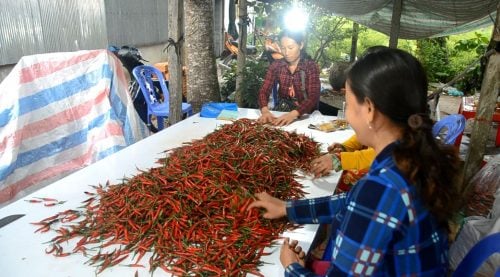
“It is very hard to survive in these rural areas. Even with a good harvest, it is not easy to sell goods. With a bad harvest, farmers lose everything,” remarks the scientist who has devoted his life to researching the Mekong Delta. “It’s become extremely difficult to work in the agriculture sector, which is why there’s even less motivation now to pursue it.”
Cross-border marriage is considered an economic alternative. Not all brides feel lucky in the end, however, as Oanh and her sister discovered as they begin their time in their new country well known for kimchi.
Differences in culture, language and lifestyle have made them become strangers in marriages without love. The inability to communicate with their husbands or their in-laws is a nightmare, they say, even after having children. “We are a couple without any agreement or compassion. My husband follows his family’s words from small things to important decisions. When I object, I’m beaten,” Oanh says.
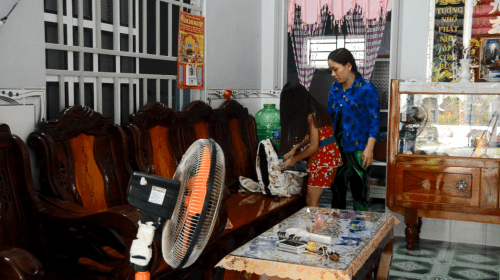
Yet she still feels luckier than her sister. “She had to work hard. If not, she could not have a peaceful meal. She was tougher than me though. Her mother-in-law kept all her income,” describes Oanh.
Both women felt disappointed and hopeless. After five years, they secretly plotted their return home with their children. Although there’s been some reconciliation with their husbands, they have not changed their minds. Though they are still poor, they’re far more comfortable back home, Oanh reiterates.
Local media reports that one in five marriages of Can Tho City women to South Korean men end in divorce. Dr. Tran Thi Phung Ha, from Can Tho University says that, “Legal separations generally occur within the first few years of marriage, with three out of four divorces beginning when the women are still young, 15-24 years of age”.
The dark side of international marriage
Dr. Tran Thi Phung Ha says that when Vietnamese brides take their mixed-race children back home, they face a range of unexpected challenges.
First, women fail to acknowledge the significance of maintaining the foreign citizenship for their children. When these babies arrive in Vietnam, citizenship remains tied to the fathers. Vietnamese relatives do help obtain local birth certificates for these children enabling them to enroll in schools, but often forget to keep their Korean citizenship papers up to date.
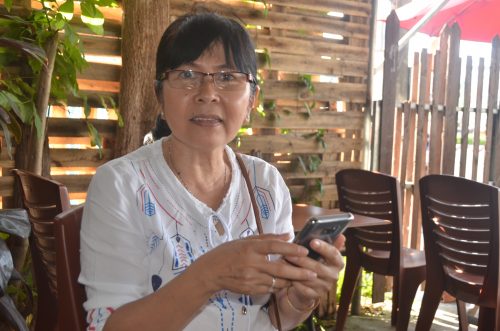
“Their families tend to ignore these [children’s] passports. To extend them, they should go to Can Tho city. It takes time and there are fees that many people can’t afford. Furthermore, they do not intend to fly back and that’s why they do not extend them,” Dr. Ha says. “These kids are foreigners living in Vietnam with their expired passports. It is illegal.”
Secondly, Vietnamese wives like Oanh and her sister ran away from their husbands without divorce. They are not legally separated. It is hard for them to remarry. Consequently, any children that may come with a new partner are not legally recognized as common children between them.
Thirdly, often mixed race children are without legal papers as their mothers did not obtain a proper marriage certificate. “It is a type of cheating marriage”, says Dr. Ha. “They migrated to live with their foreign husbands, but without any documents. Then they were beaten, and their children don’t have any birth certificates and passports.”
Addressing these challenges has become a key part of the support provided by the Can Tho Women’s Association, says its deputy chairwoman, Ms. Le Thi Thuy Hang. They provide both legal and financial services relating to international marriages, obtaining birth certificates for mixed-race children, and even building several houses for poor mothers.
For those women who do manage to remain abroad and send money home, the parents find it bittersweet says Dr. Le Anh Tuan.
“I saw a lot of new houses in my field visits. Their owners said that their daughters remitted their savings after migrating with their foreign husbands. After talking with them for a long time, they cried and confessed that they missed their daughters and grand children because they seldom see them. Even when they do visit their grandchildren, they do not understand their language,” says Dr. Tuan.
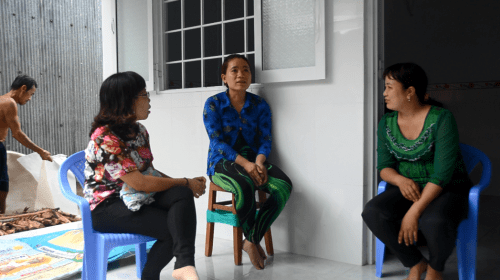
Who is going to marry me?
Pham Van Vang, an amiable and healthy twenty-year-old man from the Mekong Delta has longtime had doubts about marriage. “I’d like to get married, but I am poor and not exceedingly charming,” Vang laments while he waits for a ferry to cross Quan Chanh Bo canal.
His family has been farming shrimp in Tra Vinh province in the Mekong Delta, but their farm near Quan Chanh Bo canal is falling victim to river bank erosion. “Our 1.5 ha has been reduced to 1.2 ha and continues to shrink,” he says.
Like so many others in the Mekong Delta struggling against the mounting impacts of climate change, his family’s income has dropped such that Pham Van Vang and three of his brothers were unable to pursue higher education. They migrated to Ho Chi Minh City for work. “I earn about US$4.5 per day if I work as a truck driver or a mechanic,” he explains.
Vang is one of millions of Vietnamese men struggling to find a female partner due to the serious gender imbalance among newborns. In 2006, the ratio was 108 infant boys for every 100 infant girls. In 2017 the ratio had widened to 113 boys for every 100 girls. According to the United Nations Population Fund, a viable ratio should be 102-106 boys for every 100 girls.
In the Mekong Delta the imbalance is even greater, reported in 2016 to be 114 boys for every 100 girls. Moreover, the Mekong Delta’s birth rate of 1.84 children per woman is below the replacement rate.
So as poverty and climate change push more young women abroad and young men like Vang also seek jobs and marriage elsewhere, the demographics of the Mekong Delta are being pushed further out of balance.
Story in Vietnamese: Nghèo đói và hôn nhân xuyên biên giới
Part 1: Farming jobs eroding away in the Mekong Delta / Mất cơ hội chọn việc do sạt lở bờ biển
Part 2: Getting old and battling coastal erosion in the Mekong Delta / Tuổi già “không nhàn” ở ven sông


